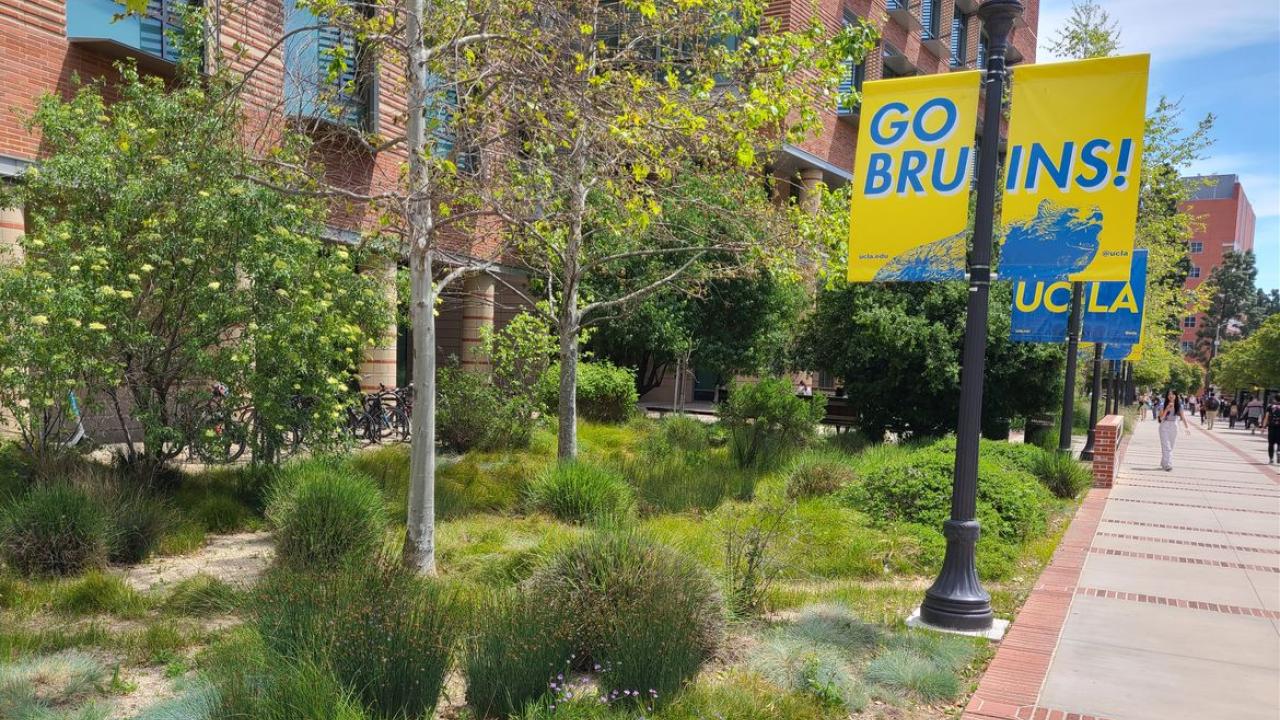On Earth Day 2022, UCLA introduced its first campuswide sustainability action plan. Today, one year later, a broad range of initiatives outlined by the plan is demonstrating progress. Overall, they have further embedded responsible stewardship into the campus’s operations, education and research, as well as into the ways UCLA engages with the community. Progress spans from the energy and ecology sectors, to public health and transportation.
As part of this mission, the UCLA Sustainable LA Grand Challenge, was also included in the report. The grand challenge launched a program called Transformative Research and Collaboration, or TRACtion, which encompasses activities and funding opportunities to eventually address transportation, energy, water and ecosystems.
To reach the goal of 100% clean electricity by 2025, UCLA signed a contract for large-scale on-site solar energy through a program with the Los Angeles Department of Water and Power. Additionally, the committee representing capital programs, the sustainability office and a Landscape and Ecology Task Force, along with UCLA Extension’s landscape program director, developed a 30-year plan for creating and nurturing biodiverse, natural environments and green spaces on campus that also promote the health and wellness of Bruins and campus visitors.
As for public health initiatives, in July 2022, UCLA Health joined a health sector climate pledge initiative launched by the White House and the U.S. Department of Health and Human Services, committing to cut greenhouse gas emissions in half by 2030. Then, in August 2022, aluminum containers replaced plastic water bottles in the residential community's vending machines.
“UCLA has made important strides this year in sustainability and continuing that progress will require engagement across the university — faculty, staff, and students, and support from our community,” said Nurit Katz, UCLA’s chief sustainability officer.
Read more about UCLA’s sustainability progress at UCLA Newsroom.
Image Source: Nurit Katz/UCLA





